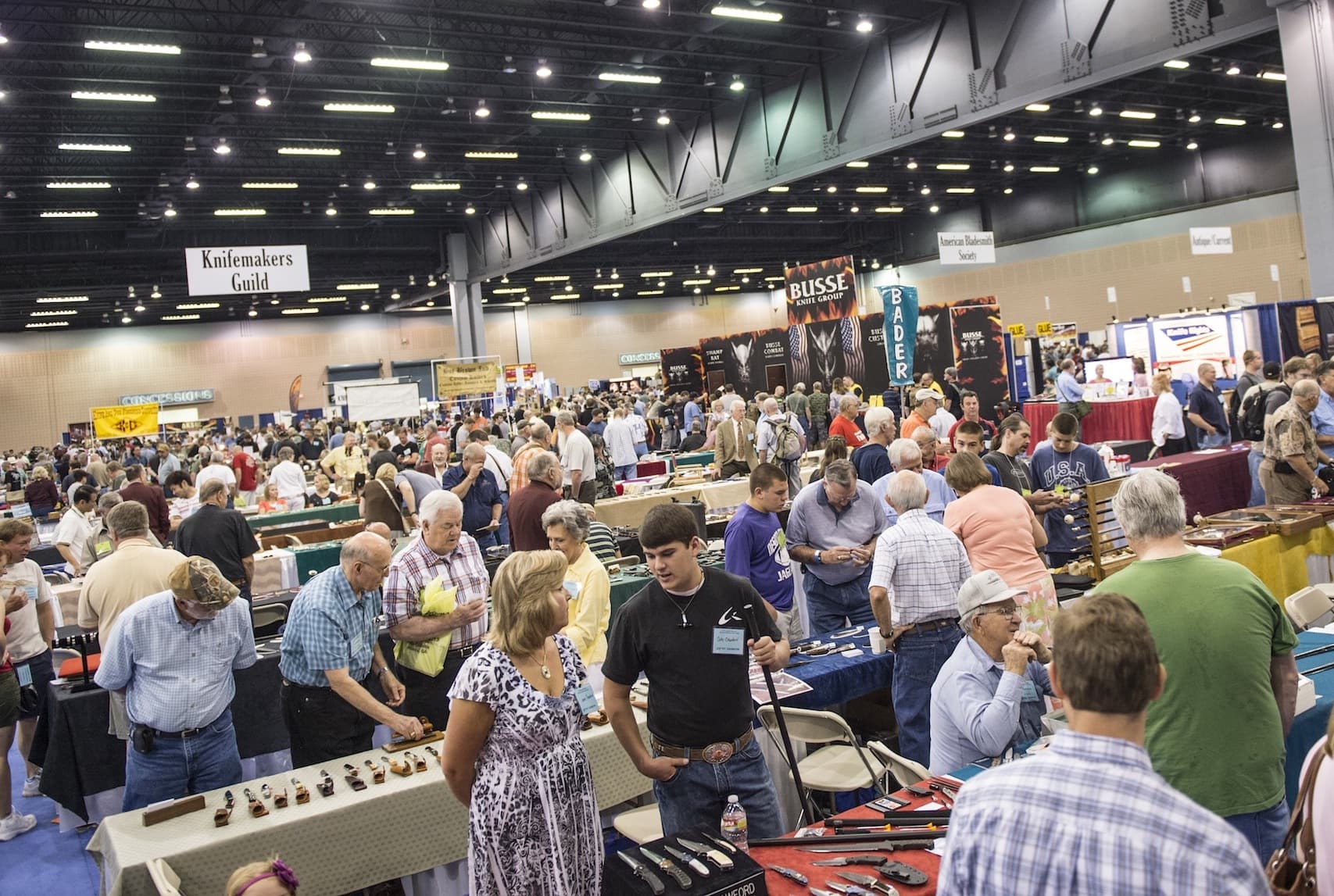The importance of non-profit organizations extends well beyond the surface. Their presence, while often not in the limelight, has been the backbone for many local and global movements that prioritize societal welfare over profits. The Knifemaker’s Guild, established as a non-profit, exemplifies this by being much more than a group dedicated to crafting knives; it’s a symbol of preserving and shaping legacies within small communities.
This Guild is a harmonious union of experienced and emerging knifemakers, all driven by a shared reverence for the blade’s artistry. It serves as a hub where traditional methods embrace modern innovations, and every member is dedicated to refining the art to unmatched standards.
The guild brings together a community of passionate knifemakers, both seasoned masters and budding craftsmen, who are united by their shared love for the art of the blade. It’s a collective where knowledge meets passion, tradition intersects with innovation, and every member strives to elevate the craft to its highest pinnacle.
While at first glance, the Guild may seem solely focused on the physical aspect of knife making, delve a little deeper, and you’ll discover a rich tapestry of initiatives aimed at societal enrichment. Being a nonprofit association, the Knifemaker’s Guild is committed not just to the craft but also to the community. They host educational workshops, create scholarship opportunities for aspiring knifemakers like “Noblie custom knives”, and even support charitable causes, reflecting the guild’s core belief that a true craftsman’s duty extends beyond his workshop.
In the vast mosaic of modern society, where every action weaves a part of the larger narrative, one element shines particularly brightly: non-profit associations. Often operating away from the limelight, these organizations champion causes that resonate deeply within our shared humanity. Their impact, however, isn’t solely determined by their dedication alone; it’s amplified by the support they receive from individuals like you and me. In this exploration, we’ll delve into the myriad reasons why throwing our weight behind these associations is not just commendable, but essential for a brighter, more inclusive future.
In the labyrinth of our modern world, where machines often overshadow manual craftsmanship, there’s a haven for artisans that stands firm in its dedication to preserving the age-old craft of knife making: The Knifemaker’s Guild.
Tracing its roots back to the 1970, The Knifemaker’s Guild stands as a testament to the enduring allure of handcrafted blades and the artisans behind them. Conceived by a close-knit group of passionate knifemakers who felt the need to preserve and elevate their craft amidst the onslaught of industrialization, the Guild rapidly blossomed into an influential body. Over the decades, it has championed the cause of traditional knife making, acting as both a guardian of age-old techniques and a hub for innovation.
The Guild’s annual shows became legendary, drawing enthusiasts and craftsmen from all corners of the globe. As much a repository of knowledge as it is a fraternity, The Knifemaker’s Guild has been instrumental in shaping the landscape of contemporary knife artistry, ensuring that the legacy of hand-forged blades is passed down through generations.
The Power of NGOs in Community Development
Non-Governmental Organizations (NGOs) play a transformative role in community upliftment. They often cater to the specific needs of the local populace, bridging gaps in education, health, and economic opportunities. NGOs have a unique ability to foster a sense of community, uniting individuals toward common objectives and nurturing local talent.
In the case of The Knifemaker’s Guild a deeper exploration reveals initiatives that benefit the community as a whole. Their dedication to societal well-being is evident in their community-based initiatives, workshops, and scholarships for budding artisans. These endeavors, while rooted in the craft of knife-making, have far-reaching impacts, fostering skills development, entrepreneurship, and community building.
The Unseen Benefits of Supporting Local NGOs
Supporting local NGOs like the Knifemaker’s Guild isn’t just about bolstering a specific craft or cause; it’s about championing the values that these entities represent. These organizations often operate on limited resources, relying heavily on community contributions and support. Their success not only amplifies the specific art or cause they support but also brings about tangible improvements in local economies, education, and social cohesion.
Furthermore, NGOs play a pivotal role in preserving local traditions and crafts, which are often at risk of being overshadowed in a globalized world. By offering platforms for artisans to showcase their talents, they ensure the survival of local crafts, stories, and traditions, thus enriching the cultural tapestry of communities.
Conclusion
The Knifemaker’s Guild, while just one example, underscores the significance of non-profit associations in our modern world. They serve as reminders of the values we hold dear and play a crucial role in strengthening small communities. By supporting these entities, we’re not just investing in a cause; we’re investing in the collective future of our communities. Their efforts, combined with our support, ensure that both traditions and innovations continue to thrive side by side.
